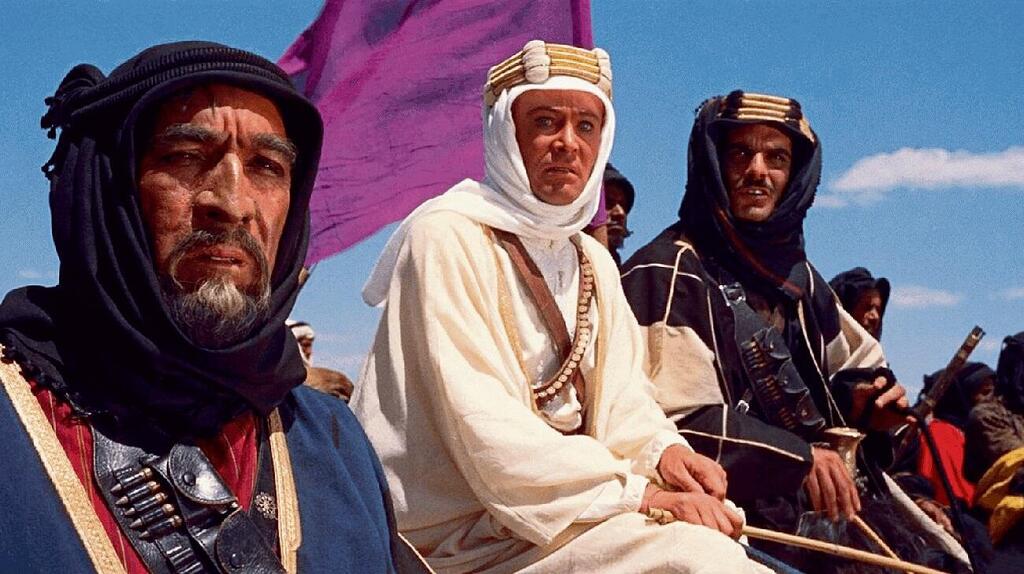Sixty-two years ago, cinemas were filled with audiences watching the epic film Lawrence of Arabia. Although today's audiences would undoubtedly find the film, saturated with Middle Eastern stereotypes, politically incorrect, Lawrence can help us understand the incredibly complex situation in Syria today. Released forty-six years after the events it depicts, Lawrence of Arabia gives us a clear picture of Syria's future.
The film begins in 1916 when the British officer T.E. Lawrence unites warring Bedouin tribes and leads them in an Arab revolt against Turkish rule. Britain promised to establish a single Arab state, but then Lawrence discovered that his government had secretly made other promises—the Sykes-Picot Agreement—with France. By dividing the Middle East between them, the Europeans created states that had not previously existed, including Syria.
Nevertheless, it is in Syria that Lawrence—against England's wishes—tries to establish an independent Arab state. After the rebels capture Damascus, he gathers all the tribal leaders in an attempt to form a government. Then, one of the film's most unforgettable scenes occurs.
In the palace of the former Turkish governor, Lawrence struggles to maintain tribal unity but fails. The chieftains immediately begin quarreling and insulting each other. Lawrence pounds his pistol on the table and demands order, but the meeting descends into chaos.
From Lawrence, we learn that the European effort to impose a European-style state structure on the tribal Middle Eastern society was doomed to fail. Indeed, the only way Syria survived was through the creation of a brutal central authority—first the French, and later a succession of ruthless dictators. To those fractious tribes, they offered the same choice: "Either you are Syrians, or you will die."
Get the Ynetnews app on your smartphone: Google Play: https://bit.ly/4eJ37pE | Apple App Store: https://bit.ly/3ZL7iNv
Now, the dictator is gone, and the tribes, though momentarily united, will soon begin fighting each other. If another brutal ruler does not take control, Syria will disintegrate. While Sunni extremists dominate Damascus, Christian communities in the west will seek to align with Lebanon, Druze villages in the south will want to join Israel, and the Kurds—quite justifiably—will demand their own state.
This outcome would not be tragic. No one will miss a Syria that served as a forward base for Moscow and later Tehran, and as a stronghold for ISIS. No one will miss a state that tried to establish a military nuclear program and amassed a vast chemical arsenal that it used to massacre its own citizens. Although ISIS and other jihadists will try to fill the vacuum in parts of the country, their ability to threaten their neighbors will be greatly diminished.
Without Syria, Israel and the entire Middle East will be safer. This outcome would have disappointed Sykes and Picot and certainly saddened Lawrence of Arabia. For us, nearly a hundred years after their efforts, their failure can only be welcomed.


